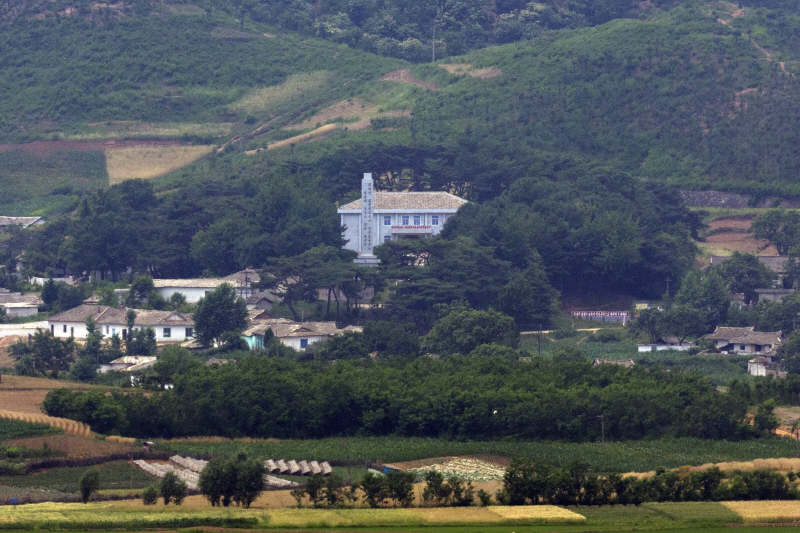[Third in a series]
“Mom, am I South Korean, Chinese, or North Korean?”
“You are neither Chinese nor North Korean. You are a South Korean.”
Jung-ah Kim (alias), a North Korean defector, faced this poignant question from her daughter, who was born in China. Kim entered South Korea in 2010 and brought her daughter, who had been left behind in China, to South Korea three years later. At the time, her daughter was nine years old.
Although her daughter was at an age equivalent to second grade in South Korea, she was thrown into a foreign environment without knowing Korean, her native language, causing significant identity confusion. Kim sighed, reflecting on the identity crisis her daughter must have experienced.
“Children of North Korean defectors born in third countries become increasingly confused about their identity the longer they live in South Korea,” she said.

According to the Korea Education Development Institute’s report published in November last year, experts agree with Kim. “Children of North Korean defectors born in third countries bear the burden of navigating the identities of China, North Korea, and South Korea alone.”
Legally, these children are not recognized as North Korean defectors because they were not born in North Korea. Even if a mother can bring her child to South Korea, the journey is fraught with danger, including the risk of being caught by Chinese authorities and forcibly repatriated to North Korea. In China, North Korean defector mothers are “illegal immigrants” and cannot be “legal guardians.”
[Children of North Korean defectors born in third countries: ‘No place to call home’]
[China-born North Korean defectors battling discrimination in South Korean schools]
Even when brought to South Korea, these children are not recognized as North Korean defectors and do not receive support. Kim explained that the burden of this discriminatory treatment falls solely on the mothers.
“North Korean women go through immense struggles and sacrifices to bring their children born in China to South Korea, only to be denied recognition and support because their children were born in China,” she said.
Kim also highlighted the educational challenges. “The most worrying issue is education,” she explained. “When children go to school, they struggle to communicate with friends due to language barriers, which undermines their self-confidence and causes suffering.”
She added that many North Korean defector mothers are raising their children and making a living on their own. “There are just so many mothers who brought their babies to South Korea and are raising them alone,” she said.
Kyung-eun Han (alias), who also came to South Korea in 2020 and brought her children three years later, echoed these sentiments. “I brought my children here, but thinking about how we will live is daunting,” she lamented. Han’s children, aged 21 and 19, lost their father in China and came to South Korea to be with their mother.
Currently battling cancer, Han said, “I was a basic livelihood recipient, and now my children are too. They are keep telling me ‘find me part-time jobs (in Korean)’ even though they barely know Korean.” Her daughter, who attends an alternative school for North Korean defectors, works in a restaurant kitchen after school washing dishes to earn money.
“My children dream of going to university, but the tuition is too high for us to afford,” Han said. “We live like this without government support right now, and I hope we can be treated equally as South Korean citizens.”
The issue of children born to North Korean defectors in third countries intersects with human rights violations against North Korean women during their defection. Han, for example, trafficked and forced into marriage with a Chinese man. After having children and living a precarious life, she was once detained by Chinese authorities and faced the threat of repatriation to North Korea. Though she narrowly escaped, she decided to come to South Korea alone, fearing she wouldn’t survive another capture.
Many North Korean women in China, like Han once was, live in dire conditions after being trafficked and forced into marriages they did not want. While this life is far from what they envisioned when leaving North Korea, the fear of repatriation, which will be met with severe punishment, including torture and even death, forces them to live in hiding. As illegal immigrants, they are also vulnerable to various crimes, including sexual assault.
Even after paying brokers significant amounts to reach South Korea via third countries, these women often face years of separation from their children, working tirelessly to save money and endure hardships to reunite with them. Jung-ah Kim, who waited three years to reunite with her child, said, “I lived with a severed heart to afford to bring my child from China to South Korea. The time apart has left a void in my child, and I feel nothing but guilt,” her voice trembling.
BY HYUNJU PARK, YEONGGYO CHUNG, YOOJUNG LEE, YOUNGNAM KIM [park.hyunju@joongang.co.kr]



